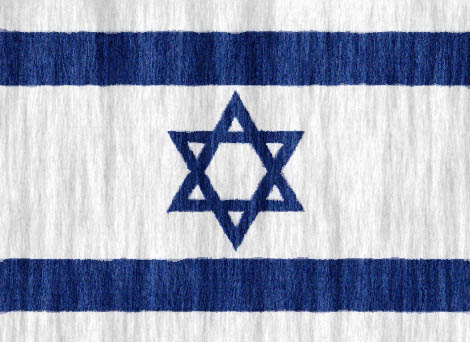DPA/Jerusalem
When Israel last year raised the threshold for entering parliament from 2 to 3.25%, Arab parties slammed the new law as a “right-wing initiative” to exclude them from politics.
They responded by uniting under one list for the March 17 election, fearing failure to make it into parliament.
Opinion polls suggest their United List would be the third largest party in the 120-seat Knesset with 12 seats, outstripping ultra-nationalist Avigdor Lieberman, whose Israel Beiteinu party initiated the higher threshold and is projected to win six seats.
“This is the first time in the history of the Arab nation, that you have a list, which includes national, liberal, secular, Islamists and communists - and Jews as well as Arabs,” says Hassan Jabareen, the founder and director of Adallah, a human rights group.
Jabareen helped mediate between the four Arab parties, which include the Jewish-Arab communist Hadash, the Islamic United Arab List, and the liberal, secular National Democratic Alliance and Arab Movement for Change.
“I bring the people into my house. My wife and I, we brought them tea. Lawyers are the best mediators,” said the attorney when asked how he succeeded in helping the parties bridge their differences.
Despite differences on issues such women’s rights and the role of religion, the parties are united in their opposition to Israel’s occupation of the West Bank and East Jerusalem and their desire to prevent a rightist coalition from taking office.
Their unity was largely spurred by laws put forward by the outgoing government of right-wing Prime Minister Benjamin Netanyahu criticised by Arabs and Jewish leftists as undemocratic and discriminatory.
The most controversial proposal was a draft law defining Israel as a Jewish state. The law was blocked by centrist former justice minister Tzipi Livni, whose opposition to government policy and siding with the opposition, prompted Netanyahu to call an early election.
“So the Arab population feel that our identity and existence are at risk,” says Jabareen. “The right-wing are the reason that made the Arabs unite.”
Arab parties never join Zionist parties in coalition governments, saying this would amount to endorsing Israel’s continued settlement policy in the West Bank and East Jerusalem, land the Palestinians want for a state.
Only a peace deal with the Palestinians could change that and this appears unlikely any time soon.
The United List hopes to win enough seats to prevent Netanyahu from forming the next ruling coalition by recommending that his leftist rivals be in government.
Israeli parties never win enough seats to form a government alone and have to engage in complex negotiations with smaller parties to secure a majority in Parliament.
Opinion polls project a hung Parliament. Netanyahu’s Likud party is running almost neck-and-neck with the Zionist Camp, which comprises the opposition Labour Party and Livni’s The Movement.
The latest projections show Netanyahu favourite to form the next government. In addition to the Arab List, the centrist party Kulanu could also prove a linchpin of the next coalition.
Arab parties hope that their United List will encourage more Arab Israelis to vote, reversing traditionally low turnouts. Turnout among Arabs was 57% at the last election, down from 80% in the early years after Israel’s founding in 1948.
Many Arabs cite “indifference” or an “ideological” protest abstention. Some 21% also cite a lack of unity among the Arab parties, says Mtanes Shehadeh of the Mada al-Carmel research centre in the mixed Jewish-Arab northern city of Haifa.
United List leader Ayman Odeh, a 41-year-old lawyer form Haifa, now hopes for a significantly larger turnout among Arab voters, which could secure up to 15 seats.
Sheikh Raed Salah, the controversial leader of an Islamic Movement who had called on his supporters to boycott past parliamentary elections, might reverse his stance this time around, says Jabareen.
The challenge for Israel’s Arab is “to bring out the families and tell them to vote” on election day, says Jabareen.

